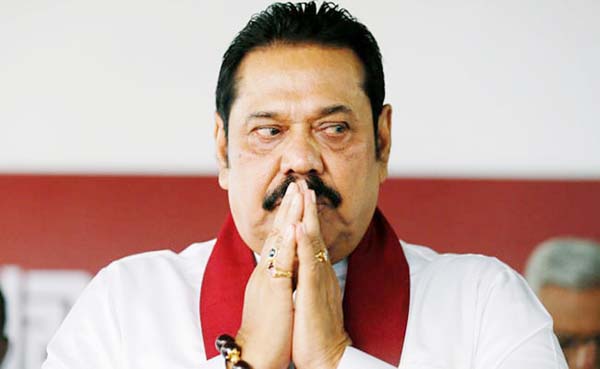
AFP, Colombo:
Sri Lanka’s current political crisis due to President Maithripala Sirsena’s “irresponsible” action of sacking prime minister Ranil Wickremesinghe has left the country on the brink of an “economic anarchy” never experienced before, the ousted finance minister said.
On October 26, Mr Sirisena, in a controversial action, sacked Mr Wickremesinghe and replaced him with former president Mahinda Rajapaksa, plunging the island nation into political chaos.
Mr Wickremesinghe has demanded a floor test to prove his majority. Mr Sirisena’s party did not cooperate with parliamentary Speaker Karu Jayasuriya to hold the floor test. Ousted finance minister Mangala Samaraweera said: “As a result of these actions, Sri Lanka is on the brink of an economic anarchy and chaos as never experienced before”.
“The cavalier and irresponsible actions of the president starting on October 26th based on personal animosities and precipitating a series of illegal acts, places at risk Sri Lanka’s ability to meet its immediate debt obligations.
“In early January 2019, we have to repay $1 billion of Mr Rajapaksa’s debt taken in January 2014, the repayment of which is also under the purview of Parliament,” he said yesterday.
Mr Samaraweera said as per Article 148 of the Constitution, Parliament shall have full control over public finance. In the absence of a legitimate government, a grave situation has now arisen as there is no legal way to meet public expenditure and obligations of the state from 2019, he said.
“The Constitution does not provide for any alternative arrangements for public finance, even with the intervention of the executive envisaged under the limited circumstances of article 150(3) under which the President can only allocate finances for the first three months of a new parliament.
“Thus, under the current circumstances, from January 1st 2019 until a new parliament is convened, the spending power of the state ceases to exist,” Mr Samaraweera said.
A legitimate government with an adequate majority in parliament would have had the opportunity to present at least a vote on account which would have covered at least the first three months of the new year enabling payment of pensions, salaries and settlement of debts, he said.
Mr Rajapaksa, at the time of appointing, said a vote on account would be presented. However, Mr Sirisena suspended the assembly until November 16, seen as a move to allow Mr Rajapaksa buy time to obtain majority by engineering defections from Mr Wickremesinghe’s United National Party.

